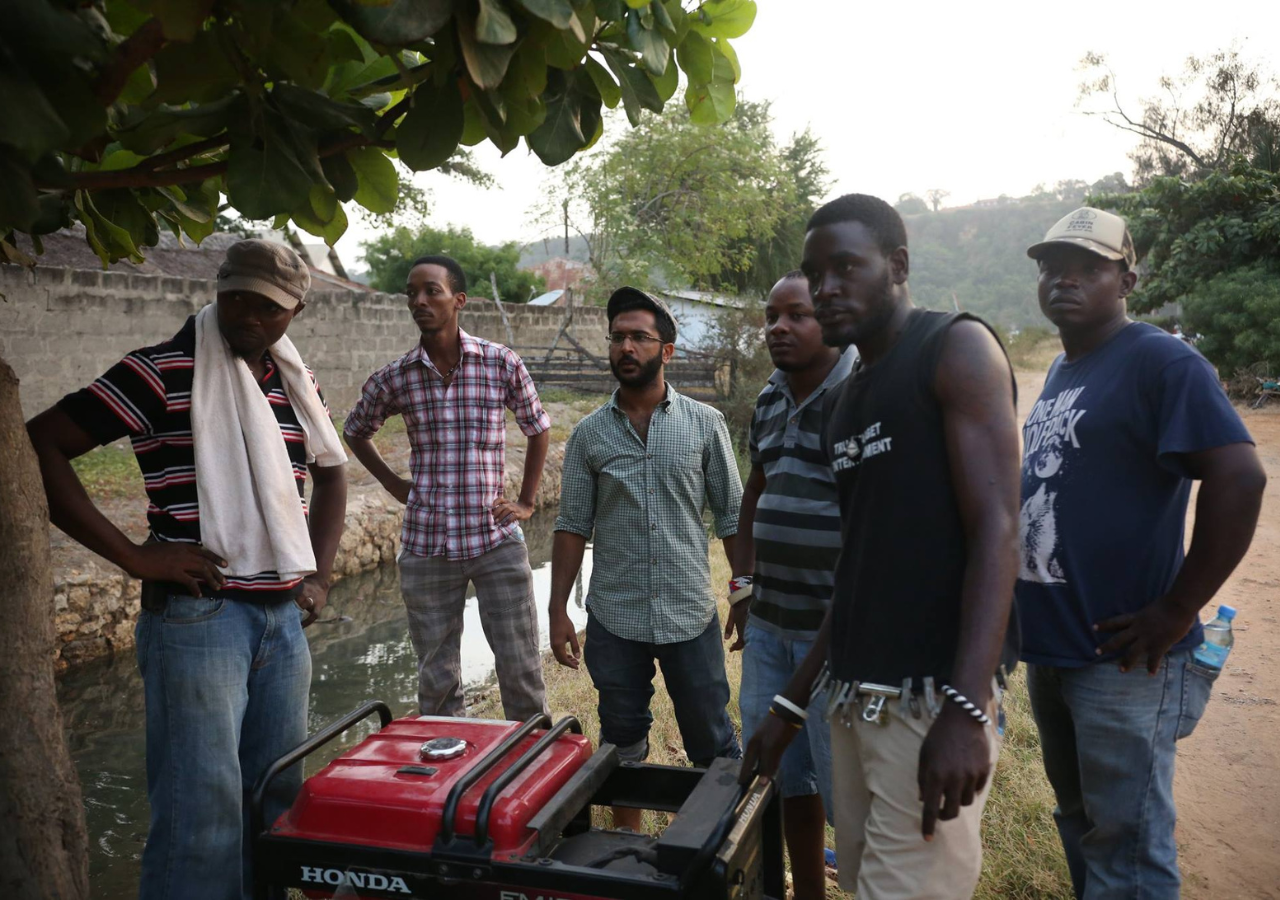It all began with watching a documentary in a film class that helped shift Amil’s career choice.
The documentary was centered around depicting the workingman in different countries and was set a few days before Eid. In Nigeria, where Eid is widely celebrated, filming took place in the markets. Shots of grown goats being slaughtered, a tradition observed in the lead up to Eid, were shown contrasted against clips of a Polish miner bottle-feeding baby goats.
As a result, to make the documentary more tasteful for the audience, the lecturer decided to cut the part set in Nigeria. Whilst others breathed a sigh of relief, Amil wasn’t pleased.
“I couldn’t help but feel anger.” Amil said. “I think I was the only international student, maybe one of the few students of colour, so I felt this real anger and I felt that something was pulled away from me, it was stolen from me at that moment.”
The moment marked Amil’s shift in career, wanting to ensure all cultures are better represented on screen.
Amil went on a binge of African movies falling further in love with their storytelling techniques ultimately concluding that “that was my calling.” Whether journalism or filmmaking, his aim was the same, only the technique would differ.
“What I wanted to do with journalism was tell social justice stories and I was able to do this now through cinema, but with a medium of mass communication, as you're speaking to many more people, and that also has an element of joy and entertainment.”
At the heart of Amil’s approach to filmmaking lies the idea of community building. Whilst it’s important to know your target audience, Amil wants it to grow: “if my audience are the Tanzanian people, it doesn't mean my film can't play for a German or American crowd. Of course, there are subtitles, but once somebody gets past this little barrier, they're able to consume films from across the world.”
With community being the focus, it’s only natural his company is called ‘Kijiweni Productions’ which means ‘the cornerstone’ in Swahili, the foundations of a community.
One of Amil’s favorite projects with his company, although difficult to choose, was one of their larger projects ‘Vuta N’Kuvute’.
“It's close to my heart because it wasn't just a film, it was a historical documentary.”
The project was set in 1950’s Zanzibar, already making it distinct as there aren’t many Swahili period movies. Amil and his team embarked on an “investigation into the history of the Swahili people, Zanzibar is considered the birthplace of Swahili culture.” The project simultaneously allowed Amil, who’s originally from Zanzibar, to unlock parts of his own history as well.
Amil’s career has had many highpoints, but he also discusses the challenges of being a filmmaker in Tanzania.
“Significantly, it’s the lack of resources and the lack of a structured industry. Everything is a little bit ad hoc right now in Tanzanian film making”
Nevertheless, his optimism enables the filmmaker to view the advantages attached to these challenges. “I also acknowledge that it allows me and other filmmakers to pave new paths.”
“There's a lot of mistakes along the way, but that allows me to create a new style and a new form, which goes against a global film industry that is full of hierarchy and power and balance and I wouldn't want to take that and replicate it here.”
Ultimately, at the core of Amil’s work lies pulling back the blanket to uncover the truth and flaws existing in society whilst also showcasing ways to improve.
“I think film works as a very powerful mirror to society and it shows the blemishes that exist and suggests ways that the world can be better and how we can be better.”
With the upcoming Global Encounters Festival, Amil hopes it leaves participants “thinking a little bit differently or asking some more questions that you weren't asking before” as well as engaging the youth. Reflecting on his own career trajectory Amil also hopes that “a space like a festival that is celebrated by the community, will allow young Ismailis to express themselves in different ways, in different forms and find out that what once were hobbies can be made into a professional career.”
For Kijiweni’s future projects, the filmmaker describes his wish to create films that leave viewers with an aftertaste.
“You can't stop thinking about the film, can't stop thinking about the characters and you fall in love with the story, and you fall in love with what the story is trying to say. I think when you have that lingering effect, it makes you want to do something, it pushes you into action and I hope my films can do that and contribute to critical conversations.”








